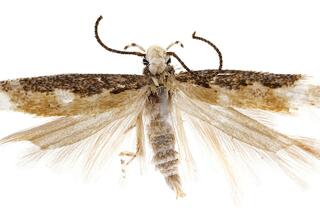Another Ameryk Go-Round Over the Name <i> America</i>
- Share via
A reader has complained about a column in which I suggested that America might have been named after an obscure English landowner, Richard Ameryk, rather than the Italian navigator, Amerigo Vespucci.
She argues that the United States has no more right to the name America than any of the other countries on the two American continents.
I dealt with that question three years ago, and I do not like to repeat myself, but I would have had to be inventive indeed to have avoided repeating myself over the last 30 years. This time I do it knowingly.
Besides, the coming quincentenary of Christopher Columbus’ voyage of discovery is evidently going to stir all kinds of controversy, so perhaps the subject is worth reviewing.
Critics of the name United States of America point out that many other countries are just as American as we are. True, and nothing prevents them from using that word in their names, except perhaps that we claimed it first.
The question was first raised here by Albert H. Clodius, a volunteer teacher at the International Student Center, UCLA. “Some Latin students in an English conversation class have repeatedly asked me what justification there can be for using the term American to refer exclusively to persons in the United States,” he said. “Since then, I have felt very uneasy about that usage. . . . “
It is curious that the first draft of the Preamble to the Constitution read, “We the people of the states of New Hampshire, Massachusetts” and so on, but that Gouverneur Morris changed it to “We the people of the United States. . . . “
Dan Jenkins of Pacific Palisades pointed out parenthetically that if the Founding Fathers had had computers, that earlier version would have been erased and we would not know of it.
The question is why are we justified in taking the name of two continents when most other countries indigenous to those continents have adopted names of local historical significance, i.e. the United States of Mexico, the United States of Brazil?
Conveniently, the citizens of those countries call themselves Mexicans and Brazilians. That leaves us free to call ourselves Americans. Even if United Statesians were euphonic, which it isn’t, it would not be unique.
The influential architect Frank Lloyd Wright once advocated that we call our country Usonia, a name invented by Samuel Butler, and ourselves Usonians. Despite Wright’s patronage, the name never caught on.
Cecil E. Ramphal of Huntington Beach said he sees no reason for complaints. “I am a foreign-born American from South America and I grew up calling people in the U.S. ‘Americans.’ Everyone in the rest of the world does the same. We never told anyone that they can’t call themselves Americans. So why the big flap?”
If the Founding Fathers had been more imaginative (all they did was hack out the Constitution and the Bill of Rights), they might have come up with the name Columbia, since the South American republic Colombia was not yet born. However, naming our country after Columbus, who never set foot on it, might have met with some resistance, as it would undoubtedly still do today. The great voyager, despite being a man of vision, was a megalomaniac, a tyrant and a murdering racist.
Since Colombia is named for Christopher Columbus, Bolivia is named for Simon Bolivar and Rhodesia was named for Cecil Rhodes, we might wonder why the Americas were given the first name of Amerigo Vespucci, instead of his surname.
The name America (Amerigo) was given to the New World in 1507 by Martin Waldseemuller, a German cartographer, who evidently sensed that Vespucci would not fall trippingly off the tongue. (As Duke Russell noted, “Can you imagine Pavarotti introducing our new anthem--’Vespuccia the Beautiful’ ?”
It is not impossible that the Founding Fathers might have named the new country Washington, or Washingtonia, since George Washington was already thought of as the father of his country. It is probably enough, though, that our capital city and one of our sovereign states is named for him.
That we call ourselves Americans is dismissed as understandable by my favorite grammarians. Roy H. Copperud says “despite occasional complaints, the application of the term primarily to the U.S. and its inhabitants is so well established and so well understood as to be beyond reasonable criticism. . . . Unfortunately, there is no other expression to describe inhabitants of the U.S.”
H. W. Fowler says “The use of America for the United States and American for citizen of the United States . . . will continue to be protested against by purists and patriots and will doubtless survive the protests.”
So I suggest that we give up this nonsense of feeling guilty about what we call ourselves.
Like the United States of America itself, it’s here to stay.
More to Read
Sign up for Essential California
The most important California stories and recommendations in your inbox every morning.
You may occasionally receive promotional content from the Los Angeles Times.










